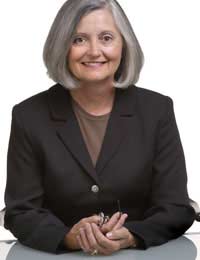Counselling for an Addiction

Counselling is the exploration of a person’s life depicting the issues that are causing upset and distress emotional pain or the aims the person would like to achieve. These factors are addressed through the use of effective communication. The person receiving the counselling must be a willing participant who wants to share experiences with their counsellor in order to explore and discuss them; this person also determines the pace of the sessions and is the focal point of the session taking the lead when comfortable.
Most counsellors have a special interest such as addiction and many even have a sub-speciality such as gambling or substance abuse.
How Does It Work?
Counselling works predominantly through the ability to listen, rephrase, suggest, highlight and add clarity to situations. Many areas of life may be explored and confusion should be reduced where possible to aid the individual in recalling subjective and objective information.Encouragement of expression is sought, especially of feelings that are normally suppressed and kept hidden. Counsellors use approved models and theories that are applied to each individuals history, and different approaches are adopted to each client.
Where Does It take Place?
Counselling is often carried out in a clinic, rehabilitation centre, a venue decided by the social service department or at the counsellor’s office.Individuals are often more open in a relaxed, informal and neutral environment.
Costs Of Counselling
The cost of counselling varies greatly depending on the location, specialism and experience of the therapist. Some people are fortunate enough to receive funding or a referral from a healthcare professional in which case funds are provided by the NHS.A private session typically costs between £25 and £40 per session. Session length varies usually from 40 minutes to two hours depending on the counsellor.
Who Are Counsellors?
Counsellors are often people who already work in or have a strong interest in mental health issues. They are typically nurses, social workers or psychiatric workers.Due to the increase in course availability, anyone can in fact become a counsellor and courses range from basic certification to a Masters Degree. A certificate does not alone suggest a successful counsellor as many of the qualities needed, for example the ability to listen patiently and carefully and the ability to interpret dialogue cannot often be learned on a course, and it is these qualities that are an integral part of the role.
Counsellors are frequently ex-addicts themselves and have the added bonus of a true understanding of the disorder and are helpful in providing advice for dealing with the issues surrounding withdrawal.
Finding a Counsellor
Always ask your healthcare provider for a recommendation; these people have lots of contacts and will know who specialises in addiction and if they have a special interest in the sub-categories of addiction.Phone the social services department and find out if they have a list of local counsellors that suggests if they have a special interest.
Use the telephone book or Citizens Advice Bureau if possible and research each counsellor on their merits.Counselling is a valuable resource for addicts as they can freely discuss fears, anxieties and experiences in a non-judgemental environment without trepidation of upsetting loved ones.
- Memory Training to Treat Addiction
- Uncommon Drug Addictions and How to Stop
- Addiction Treatment Centers: What to Expect
- New Programmes for Addictions
- Vaccine for Nicotine Addiction
- Using Self-Help Techniques to Addiction Free
- Effects of Withdrawal from an Addiction
- Substitute Medication to Overcome Addiction
- Abstinence And Helping To Overcome Addictions
- Psychotherapeutic Interventions
- Treating Addictions With Acupuncture
- Choosing The Right Treatment for an Addiction
- Hypnosis for an Addiction


Re: Addiction to Shopping
Hi, I came to realize that I have shopping addiction and it’s getting out of control. I need help but I don’t know where to start. I would…
Re: Beating an Addiction to Pornography
I am in a long term relationship and have a fulfilling sexlife, but i struggle with porn, i feel the need and temptation…
Re: Offering Support to an Addiction Sufferer
My big sister died of a brain tumor then 6 week later my mum went too . I have multiple myeloma and am terminal.…
Re: Addiction to Shopping
I am now at my whits end, my husband is spending money like it has gone out of fashion, and now i am homeworking, I take in the deliveries…
Re: How to Assess The Level of an Addiction
Over a series of many years I have discovered that I have an addicted personality, it has never worried me too much…
Re: How to Assess The Level of an Addiction
Over a series of many years I have discovered that I have an addicted personality, it has never worried me too much…
Re: Offering Support to an Addiction Sufferer
I am an addict and I have just separated from my husband of 16 years as we together developed a cocaine problem.…
Re: Recognising Alcohol Addiciton
Ever since I can remember, I've always overindulged before/during social events. It's got to the point where I've been hateful to…
Re: Beating an Addiction to Chocolate
I suffer from anxiety and mild depression. As a stay at home mum I find myself bored sometimes and truthfully stressed. My…
Re: Offering Support to an Addiction Sufferer
Hi im dpeaking on behalf of my partner , who has a bad alcohol addiction..And this has been going on for neaely…